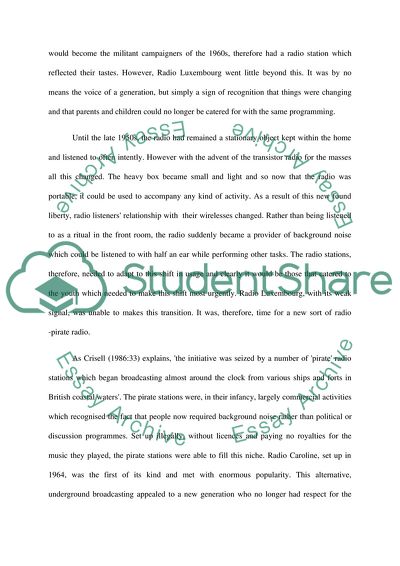Cite this document
(How Did Radio in the 1960's Mark the Changing Social Order in the UK Term Paper, n.d.)
How Did Radio in the 1960's Mark the Changing Social Order in the UK Term Paper. https://studentshare.org/social-science/1723244-how-di-radio-in-the-1960s-mark-and-even-actively-promote-the-changing-social-order-in-the-uk-and-us
How Did Radio in the 1960's Mark the Changing Social Order in the UK Term Paper. https://studentshare.org/social-science/1723244-how-di-radio-in-the-1960s-mark-and-even-actively-promote-the-changing-social-order-in-the-uk-and-us
(How Did Radio in the 1960'S Mark the Changing Social Order in the UK Term Paper)
How Did Radio in the 1960'S Mark the Changing Social Order in the UK Term Paper. https://studentshare.org/social-science/1723244-how-di-radio-in-the-1960s-mark-and-even-actively-promote-the-changing-social-order-in-the-uk-and-us.
How Did Radio in the 1960'S Mark the Changing Social Order in the UK Term Paper. https://studentshare.org/social-science/1723244-how-di-radio-in-the-1960s-mark-and-even-actively-promote-the-changing-social-order-in-the-uk-and-us.
“How Did Radio in the 1960'S Mark the Changing Social Order in the UK Term Paper”. https://studentshare.org/social-science/1723244-how-di-radio-in-the-1960s-mark-and-even-actively-promote-the-changing-social-order-in-the-uk-and-us.


